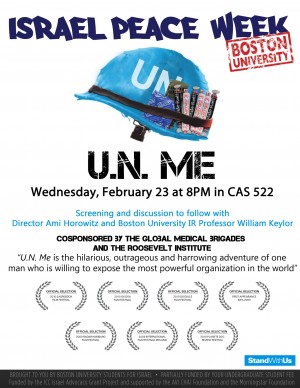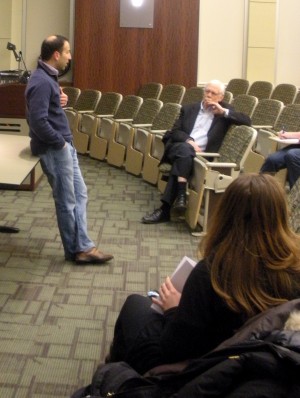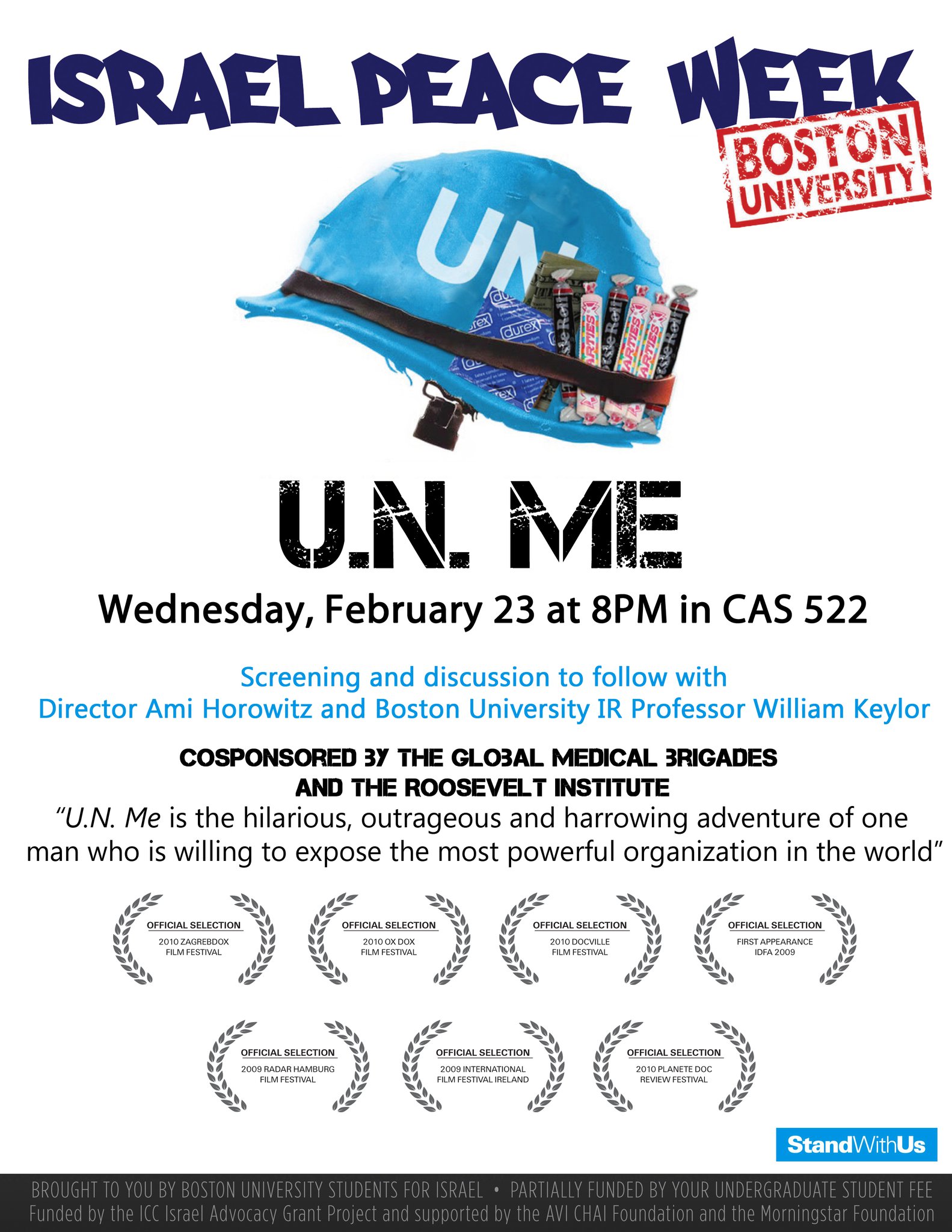
The United Nations is a complex, international authoritative body that director Ami Horowitz’s view summarizes in five words: “Great idea, piss-poor execution.”
Horowitz’s documentary, U.N. Me elaborates this motto in around two hours, but in no less mincing terms. About 30 students gathered for a screening of the film held in the College of Arts and Sciences, which was and organized by Boston University Students for Israel as a part of Israel Peace Week.
Horowitz, who worked as an investment banker before writing, producing and directing U.N. Me was on hand to discuss the movie. In an interview with the Quad, Horowitz says the inspiration for the film came while watching Michael Moore’s documentary, Bowling for Columbine.
“I started drifting off, thinking about the U.N. and getting upset,” Horowitz said. “I realized that this is a great medium and had this epiphany, a light bulb moment. I quit my job, raised money, made a list of the best documentaries I’d ever seen and hired people who worked for them.”
Moore’s influence is clear in the point-of-view polemic, which is at once satirical and dramatic. Horowitz addresses and undresses the United Nations on a variety of issues, including the Ivory Coast, the International Atomic Energy Agency, anti-terrorism measures, the oil-for-food program and genocides in Rwanda and Darfur. He does so through interviews with U.N. officials, cartoon graphics and movie clips ranging from Team America to Shake Hands with the Devil.
Joining Horowitz at the screening was BU international relations professor William Keylor, who spoke beforehand about the formation of the international body. After the film, he discussed the contradictions and complexities the U.N. faces today.
“In a global community of independent nations,” Keylor said, “do you want to have all nation-states included…and how do you decide on who gets in and who doesn’t?”
Students in attendance say they understood the film’s message but disagreed on the effectiveness of Horowitz’s methods.

“The purpose of the film was to expose the UN as a disabled organization, and that point comes out pretty clear,” said BU graduate student Danit Kaya. “But I thought some parts were too dramatic, which hurts the documentary’s credibility.”
“As a public health student, I knew the issues and that the U.N. is corrupt,” said BU graduate student Dan Purnell. “But this film does a wonderful job on the heartstrings and making activists out of people.”
Despite spending five years working on the film and seeing the United Nations’ ineptitude and corruption firsthand, Horowitz remains optimistic that the body can live up to its lofty ideals.
“We deserve better than what the U.N. has given us so far,” Horowitz said.”If anything, my view of the U.N. got dimmer. But I’m idealistic at the same time. I still have hope that it can be better, and I hope that this can be a catalyst.”
Find out more information on Horowitz and the film, which is projected for wide release in September, at the movie’s website.

